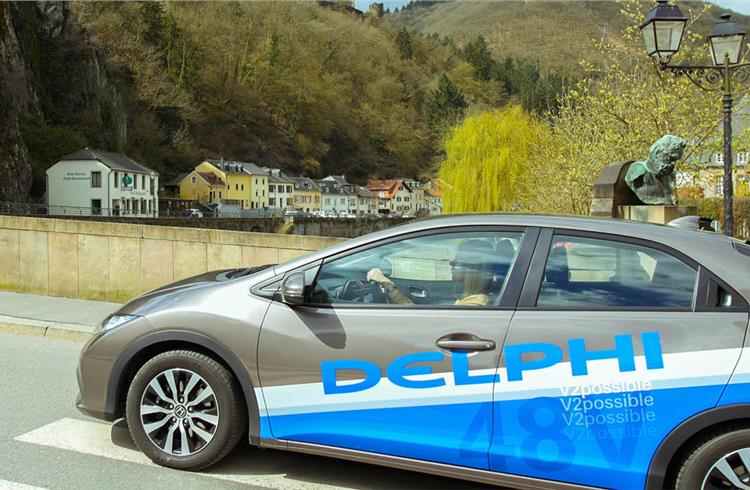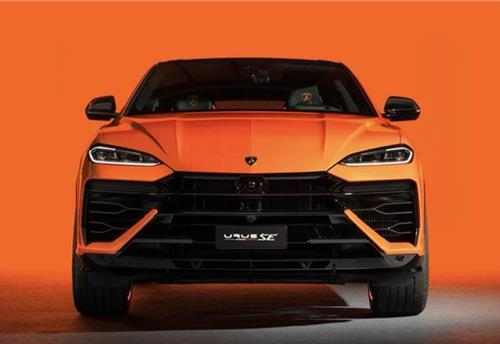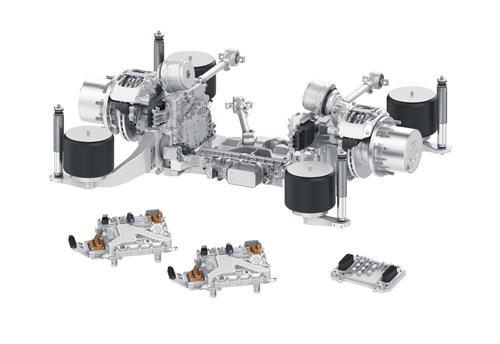Delphi’s 48-volt, mild hybrid tech likely to see production by 2018
Delphi has confirmed it is working with two global automakers and its 48-volt, mild hybrid technology could see production within 18 months.
Delphi Automotive has unveiled its 48-volt vehicle solution that could prove pivotal for automakers in meeting future emission regulations without sacrificing performance for customers. The company confirmed it is working with two global automakers and could see production within 18 months.
Showcased in a Honda Civic 1.6-litre diesel vehicle at the company’s annual investor update, Delphi’s 48-volt, mild hybrid technology enables ‘intelligent’ electrification. The customised vehicle architecture maximises the use of the 48-volt electrification to minimise the demand on the engine, improving performance while lowering CO2 emissions by more than 10 percent.
“This is not only a significant step forward with reinventing the electrical architecture for dual voltage capability, it is also a triumph of software,” said Jeff Owens, Delphi’s chief technology officer. “This intelligent approach to vehicle power, wiring and data management will not only improve fuel efficiency, but will also enable a world-class driving experience while providing additional power for active safety systems and increased connectivity in the car.”
The solution allows automakers ample room to innovate without moving up to bigger engines to get more power. This technology leverages what engineers call an ‘e-charger’ for improved vehicle launch. Delphi’s demonstration vehicle increases low-end torque an average 25 percent.
According to Owens, Delphi will have a competitive advantage in 48-volt, mild hybrid systems because of the company’s deep history in system design, proprietary engine management software and expertise in electrical architectures.
“Car buyers will buy 48-volt, mild hybrids for the added performance and car companies will offer the technology because it will help them comply with environmental regulations,” said Owens.
According to IHS market research, the industry is going to see a sizeable shift within the next decade. “One out of every 10 cars sold globally in 2025 will be a 48-volt, mild hybrid,” said Owens. “To put that into perspective, that’s 11 million units a year – three times the volume of pickup trucks sold annually and more than half of the world’s anticipated diesel passenger car market.”
From an environmental viewpoint, the savings have great potential. It is estimated that 11 million 48-volt, mild hybrid vehicles would reduce oil consumption by four billion gallons (more than 15 billion litres) over the life of the fleet.
According to the U.S. Department of Energy (DOE), the impact of not burning that much fuel would equal the carbon sequestration of a forest the size of the state of New York or all of Iceland.
As for greenhouse gas emissions, it would have the same effect as conserving 124 million barrels of oil or not burning 57 billion pounds of coal, according to the DOE.
RELATED ARTICLES
Lamborghini unveils Urus SE ahead of Auto China 2024
Electric-only range of 60km helps reduce emissions by 80%.
ZF to display next-gen e-axle for low-floor city buses at Busworld Turkiye 2024
The AxTrax 2 LF is available with a continuous output of up to 360 kW and a peak torque of up to 37,300 Nm.
Daimler Buses and BMZ Poland to develop next-gen NMC4 electric bus batteries
The new battery generation NMC4 – succeeding the current NMC3 technology – will combine high energy density, resulting i...





 By Autocar Pro News Desk
By Autocar Pro News Desk
 13 Apr 2016
13 Apr 2016
 4077 Views
4077 Views









